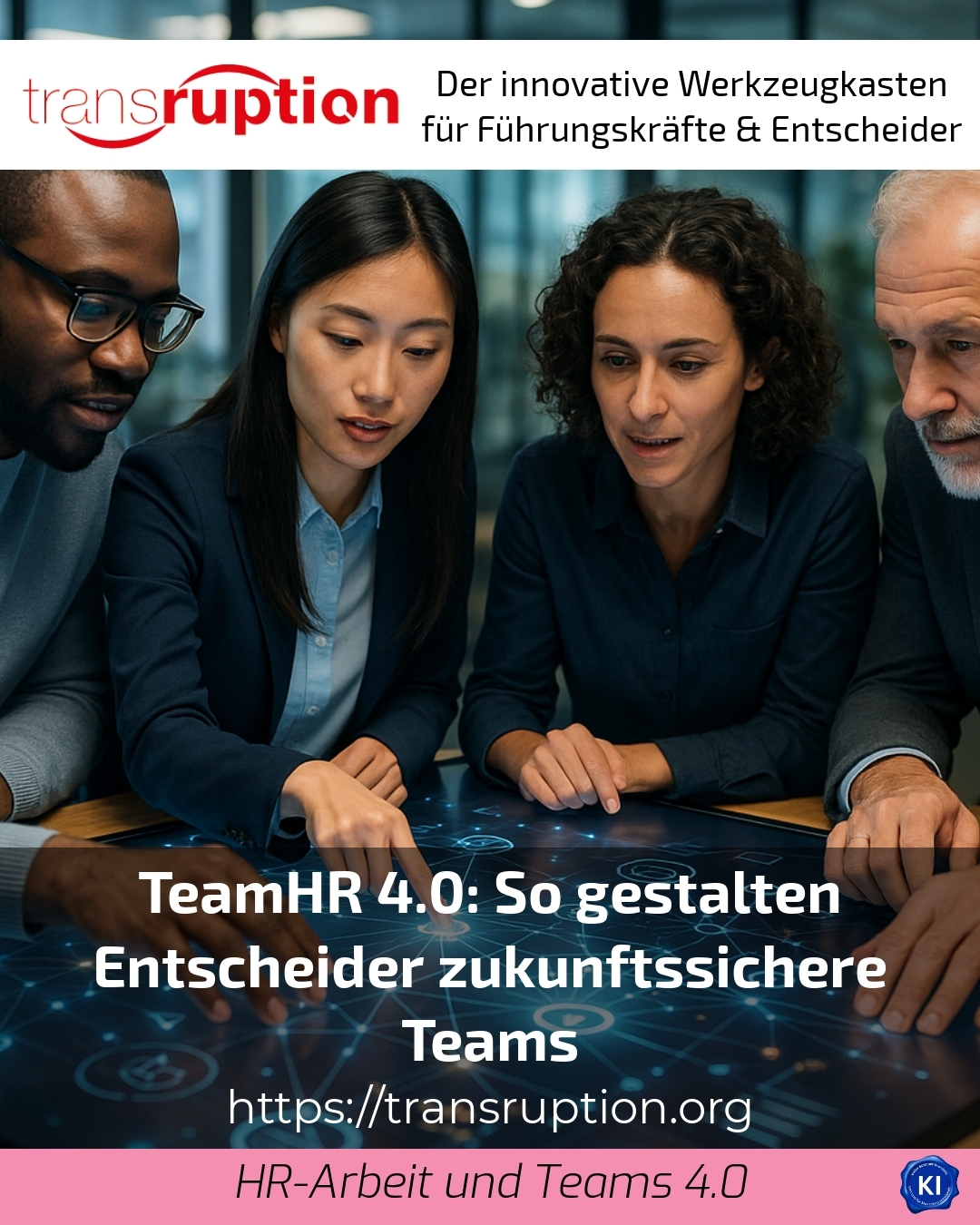TeamHR 4.0: How decision-makers design future-proof teams
In times of digital transformation, managers are faced with the challenge of making their teams not only efficient but also future-proof. TeamHR 4.0 is becoming increasingly important as it enables the shift from purely administrative tasks to strategic, technology-supported HR development. The question of how decision-makers can shape this process is central to sustainable corporate success.
Technology as an enabler in TeamHR 4.0
TeamHR 4.0 uses digital tools and automation to reduce routine activities. This allows managers to focus their attention more on strategic issues, such as attracting and developing talent or promoting the corporate culture. Intelligent software solutions are used to network data from different departments, which improves decision-making and promotes collaboration.
Some companies report great progress when they use AI-supported analysis tools, for example, which evaluate profile and performance data for customised development programmes. Others are using digital platforms to manage talent pools flexibly and agilely and thus react quickly to market changes.
BEST PRACTICE at company XYZ (name changed due to NDA contract) A smart HR platform was introduced there to support managers in identifying key competences. This enabled them to tackle individual training plans and promote collaboration within teams in a more targeted manner, which increases innovative strength.
Focus on people despite digitalisation
Although technology is moving centre stage, people remain at the heart of everything we do. TeamHR 4.0 focuses on relieving employees through automation so that they can concentrate on creative thinking and problem solving. Managers promote dialogue, create space for feedback and develop a positive working environment through interactive formats.
Typical topics that managers come to consultations with are questions about employee motivation in flexible working models, the integration of new generations in the team or the design of learning paths in the digital environment. The aim is not to eliminate all challenges immediately, but to provide impetus and support change processes.
BEST PRACTICE at ABC (name changed due to NDA contract) In order to increase the acceptance of digital offerings, a hybrid coaching model was used to support managers in combining this with emotional intelligence. Clients often report that this has resulted in a more open error culture and a greater willingness to share knowledge within the team.
New roles and competences for sustainable teams
TeamHR 4.0 requires decision-makers to increasingly act as facilitators and networkers. This means not only delegating traditional HR tasks, but also actively managing cultural change and establishing new roles. Agility, digital expertise and emotional intelligence are key factors that need to be developed and practised in the teams.
In industry, the service sector and also in public administration, decision-makers are increasingly relying on cross-functional teams and skills development programmes that specifically promote digital and social skills. This creates more resilient organisations that enable innovation and at the same time strengthen employee loyalty.
BEST PRACTICE at DEF (name changed due to NDA contract) A process was introduced there in which teams regularly reflect on their digital and social skills. This gave managers a better understanding of development needs and enabled them to initiate targeted workshops. This demonstrably led to greater adaptability to changing market requirements.
Conclusion: Support and impetus for TeamHR 4.0
The implementation of TeamHR 4.0 is a dynamic process that is geared towards the respective organisational needs. Decision-makers benefit from targeted support, for example through coaching formats that provide practical impetus and encourage dialogue. This is not about absolutely generalisable solutions, but about individual support in designing future-proof teams in the context of TeamHR 4.0.
My analysis
Technology is an important lever, but the human factor remains crucial. Successful teams are created when managers promote both technical and social skills. Support from experienced coaches helps to shape change sustainably. In this way, TeamHR 4.0 becomes a building block that enables organisations to remain flexible, innovative and people-centric.
Further links from the text above:
[1] HR 4.0: how technology is transforming people management
[5] HR4.0: Shaping People Strategies in the Fourth Industrial Revolution (PDF)
[7] Digital transformation: HR effects in industry 4.0 - Workleap
For more information and if you have any questions, please contact TeamHR 4.0 or read more blog posts on the topic TeamHR 4.0 here.















